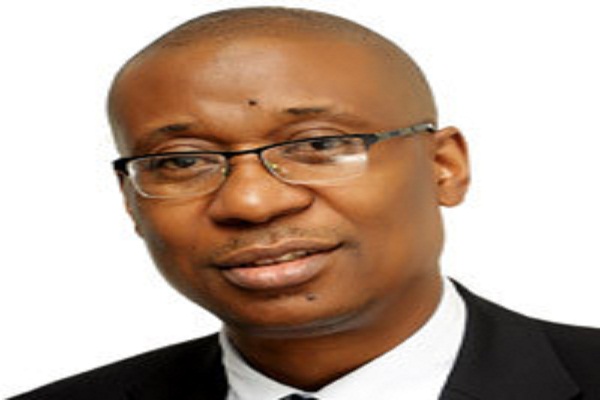Telecom
PEBEC Urges Stakeholders to Drive Reforms on Ease of Doing Business

The Presidential Enabling Business Environment Council (PEBEC) recently hosted multiple stakeholders’ engagement events in Lagos and Kano State, In line with the objective to actively engage members of the organized private and public sector and to drive awareness about the implementation of relevant business climate reforms.
The series of events took place last week, kicking off in Kano with a focus on the agribusiness value chain and the impact of regulatory agencies.
Progress on the reforms delivered in collaboration with MDAs and the Kano State government were shared for feedback and discussions, to enable PEBEC identify opportunities to inform the agenda for the next cycle of reforms commencing in July 2019.
The event had a technical session on Apapa gridlock and call-up system reforms was also organised in Lagos.
The session served as a platform for discussions to deliver a gridlock-free Apapa, and enhance the ease of entry and exit into the ports in line with the Trading Across Borders focus area of the Council.
Following the last intervention by His Excellency the Vice President, Prof. Yemi Osinbajo (SAN) in November 2017, processes were agreed to address the issue but implementation remains a challenge.
Recording an impressive turnout with strong private and public sector representation, this session signalled a recommitment to ensuring the delivery of a workable resolution, as stakeholders across board engaged and agreed all agencies in the joint task force must be called to order and made to work together.
On legislative interventions of the Council, the Lagos forum was also well attended by members of the legal community and other stakeholders, as it shone a spotlight on the legal reforms delivered in several focus areas such as Getting Credit and Starting a Business.
In particular focus were the proposed Omnibus Bill, and the Companies Allied Matters (CAM) Bill – a repeal and re-enactment of the current Companies and Allied Matters Act (CAMA).
The CAM Bill has undergone its first review in 29 years with the support of several members of the public and private sector, including legal firms.
It is anticipated to be one of the most significant legal reform initiatives by any Nigerian government in the last three decades, having passed its third reading in February 2019 and been transmitted by the National Assembly to the President for assent.
Speaking at the Lagos event, Dr. Okechukwu Enelamah, Honourable Minister for Industry, Trade & Investment and PEBEC Vice-Chair, applauded the private sector for its co-operation and support towards driving the Ease of Doing Business reforms in the country.
The Minister stated, “The vision of this administration is to ensure a more conducive environment where small and big businesses are able to function effectively and with ease.
“These forums provide an opportunity for us to interact and communicate the progress of reforms while receiving feedback from stakeholders.
“This year, we had a great start with the launch of the Kano Small Claim Court in January, following their launch in Lagos State in 2018 and the positive performance recorded since its inception.
“The anticipated passage of the CAM Bill will be another significant hurdle in our efforts to improve the effectiveness of company law, help businesses grow, and drive our Doing Business ranking as a nation.” he said.
Earlier, Dr. Jumoke Oduwole, Senior Special Assistant to the President on Industry, Trade & Investment & PEBEC Secretary, stated that it is the objective of the Council to continually engage key stakeholders on growth opportunities in different sectors of the economy, and to facilitate feedback on areas for improvement as it relates to the ease of doing business mandate.
“In our usual approach of collaboration and inclusiveness, we partnered with several members of the private sector to ensure strong participation, engagement and impact from this series of stakeholder sessions.
“These included the Nigeria Agribusiness Group (NABG), the Nigerian Bar Associations-Section on Business Law (NBA-SBL), and PDFII, as well as the state governments, MDAs and other key stakeholders. We could not do this without them.” she said.
PEBEC was established in 2016 to oversee Nigeria’s business climate reform agenda. The Council’s model aligns with global best practice, and is filtered by a number of domestic and international rankings including the World Bank Doing Business Index (DBI), which is reported annually.
Telecom
TikTok, Instagram Blamed in US Youth Suicide Lawsuit

Major social media giants Meta Platforms, TikTok and Alphabet’s YouTube will face a landmark jury trial this week in Los Angeles County Superior Court over allegations that their addictive designs have fuelled a youth mental health crisis, marking the first such case to reach this stage.

Social Media
The pivotal personal injury lawsuit centres on a 19-year-old Californian woman identified as K.G.M., who claims her childhood immersion in Instagram, Facebook, YouTube and TikTok—engineered with endless scrolls, autoplay videos, notifications and algorithms—sparked severe anxiety, depression and suicidal thoughts.
Dozens of similar suits have surged since 2022 from families, schools and states, accusing the firms of burying internal research on teen harms while prioritising ad revenue through youth-targeted engagement hooks, despite Section 230 protections for user content.
Plaintiffs seek damages and design overhauls, arguing platforms bypassed parents and preyed on vulnerable kids; defendants counter there’s no clinical “social media addiction” diagnosis, no proven causation—kids with issues often use less—and they’ve added safeguards like parental controls and time limits.
Echoing Australia’s under-16 bans, the trial will scrutinise thousands of internal documents, expert testimonies and K.G.M.’s story, potentially expanding tech liability amid debates where studies show complex links, not direct causation, between screen time and disorders like eating issues or self-harm.
A win could mandate warning labels, age gates or algorithm tweaks, reshaping global platforms as U.S. Surgeon General advisories and global scrutiny intensify pressure on Big Tech to prioritise child safety over profits.
Telecom
Meta Tests Paid Subscriptions Across Instagram, Facebook, WhatsApp

Meta is gearing up to trial paid subscription services on Instagram, Facebook, and WhatsApp, aiming to diversify revenue streams beyond advertising while maintaining free core access for all users.

Meta
The subscriptions will offer enhanced tools tailored for everyday users, creators, and businesses, including advanced content creation, sharing, and workflow features distinct from the existing Meta Verified verification program. Unlike a uniform rollout, Meta plans varied testing formats per app to match diverse audiences, experimenting with feature bundles based on user feedback to refine the model.
A key element involves integrating Manus, the autonomous agent firm Meta acquired for $2 billion in December, into these apps alongside its enterprise sales. Manus enables complex task automation with minimal input, with early signs like Instagram shortcuts already spotted by reverse engineer Alessandro Paluzzi.
Video tools feature prominently: Meta’s Vibes short-form video generator in the Meta AI app shifts to freemium, where paid tiers unlock higher monthly creation limits beyond the free baseline. On Instagram, subscriptions could enable unlimited audience lists, non-follower tracking, and anonymous Story views, though specifics for Facebook and WhatsApp remain under wraps.
Drawing from Meta Verified’s 2023 launch—which provides badges, support, and protection mainly for creators—these broader plans target wider appeal amid industry shifts. Ad growth slows against TikTok competition, while Snapchat+ boasts 16 million subscribers at $3.99 monthly, proving demand for value-driven paid perks despite subscription fatigue risks from streaming and storage fees.
Meta will phase tests gradually, prioritizing feedback to shape long-term viability without alienating free users.
Telecom
New Investment Fund Targets Acceleration of Emerging Technology in Nigeria

The International Rescue Committee (IRC) has announced the formation of Airbel Ventures, a new humanitarian impact investing fund aimed at accelerating the introduction and scaling of breakthrough technologies in crisis-affected communities.

The fund will invest in companies whose ideas have the potential to change humanitarian response, including digital infrastructure for frontline health systems and climate-resilient agriculture.
The launch of Airbel Ventures follows a period of rapid innovation at the IRC, despite the humanitarian sector facing record funding cuts.
In the past year, the IRC’s Airbel Impact Lab has advanced more than twenty Artificial Intelligence (AI) and technology initiatives—from anticipatory action tools powered by climate and vulnerability data, to frontline service delivery using safe, orchestrated AI systems, to breakthrough diagnostic tools for emerging diseases.
Airbel Ventures’ first impact investment is in Signalytic, a company delivering solar-powered computing devices that ensure reliable electricity and connectivity for remote health facilities.
Following the investment, the IRC will pilot Signalytic’s technology with its Nigeria Health team, demonstrating the viability of next-generation digital infrastructure in humanitarian settings.
“We know breakthrough solutions already exist—what’s missing is the path to scale in humanitarian contexts,” said Dr. Jeannie Annan, Senior Vice President for Research & Innovation at the IRC and head of the Airbel Impact Lab.

 News2 days ago
News2 days agoLIRS to Invoke NTAA to Recover Unpaid Taxes from Bank Accounts, Others

 News2 days ago
News2 days agoAnambra Cuts Monday Pay to Kill Sit-at-Home

 E-Financial2 days ago
E-Financial2 days agoFirst Asset Management Receives Upgraded Ratings from Agusto &Co and DataPro

 General News2 days ago
General News2 days agoNigeria Treats Religious Violence as Attack on State – NSA Ribadu

 E-Financial2 days ago
E-Financial2 days agoNIBSS, Others Flag 13,417 Nigerian Fraudsters on Person of Interest Portal

 E-Financial2 days ago
E-Financial2 days agoCBN Prepares Fresh Debit Card Rules to Improve ATM Services

 News1 day ago
News1 day agoTech Executives Double Down on AI, Talent and Adaptive Strategies to Lead in the Intelligence Age

 E-Financial1 day ago
E-Financial1 day agoCBN Upgrades Licences of Opay, Moniepoint, Kuda, Palmpay, Paga to National Status















